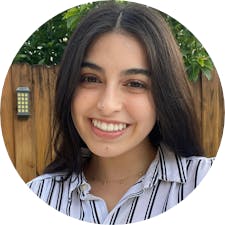President Fuchs’ Task Force on Outside Activities had its first two meetings last week following heavy scrutiny on UF’s decision to limit eight professors from testifying in lawsuits against the state.
The task force had its first meeting Tuesday and created a plan to address issues with UF’s written policies on disclosure of outside activities and conflict of interest by Nov. 29.
Members agreed to divide the investigation into two phases to present recommendations to President Fuchs before his proposed deadline of Nov. 29.
They decided to first analyze the problems with expert witnesses and litigation. With the second phase, they plan on examining the processes professors must go through when requesting to participate in outside activities, such as testifying as an expert witness and examining who decides to allow the professors to participate and how the decision gets communicated transparently.
The group also agreed on inviting someone to help the members with the medical context for situations where a UF medic or doctor is needed to deliver expert testimony against another doctor or the state.
Additionally, the task force agreed to hold seven virtual meetings before the Nov. 29 deadline.
In its second meeting Friday, the task force met for about an hour to begin discussing the legalities of participating in outside activities and academic freedom.
Along with all members of the task force, Randall Jenkins, UF Health senior vice president and general counsel, attended the meeting. He was invited by the group to answer any questions and provide suggestions on the medical perspective of the issue with university doctors being expert witnesses.
Clay Calvert, UF law and journalism professor, and Laura Rosenbury, UF Levin College of Law dean, also led the task force through discussions on First Amendment rights for UF employees.
Both Calvert and Rosenbury brought up the need to address what defines a conflict of interest according to the university’s policy. Rosenbury said it is currently defined as an interference with the performance of the professors or employees’ job duties.
“I would love to hear more about why testifying in a case where the university or a university employee is a party would necessarily interfere with the performance of the experts’ job duties,” Rosenbury said.
Calvert and Rosenbury also asked to examine what the interest of the university and the individual is and how the university’s interests can be harmed by professors, if at all.
One of the last things the team agreed on is drafting its discussions into policy recommendations they would present to the president in late November.
However, members of the task force also raised questions of transparency with the university’s faculty and staff as they start considering possible recommendations.
“As someone on the faculty, I guess, I just would hope that there would be some transparency with these decisions,” said Katie Vogel Anderson, UF clinical associate professor for the College of Pharmacy and task force member.
At the end of the Friday meeting, the task force agreed to analyze the process the university uses to receive outside activity requests for expert witness testimony in the next meeting Nov. 15. Terra DuBois, UF’s chief compliance, ethics and privacy officer, will lead the conversation.
Contact Camila Pereira at cpereira@alligator.org. Follow her on Twitter @CamilaSaPereira.

Camila is a third-year journalism student and the administration reporter on the university desk. When she is not reporting for The Alligator, Camila is always listening to music and probably drinking honey milk tea.






